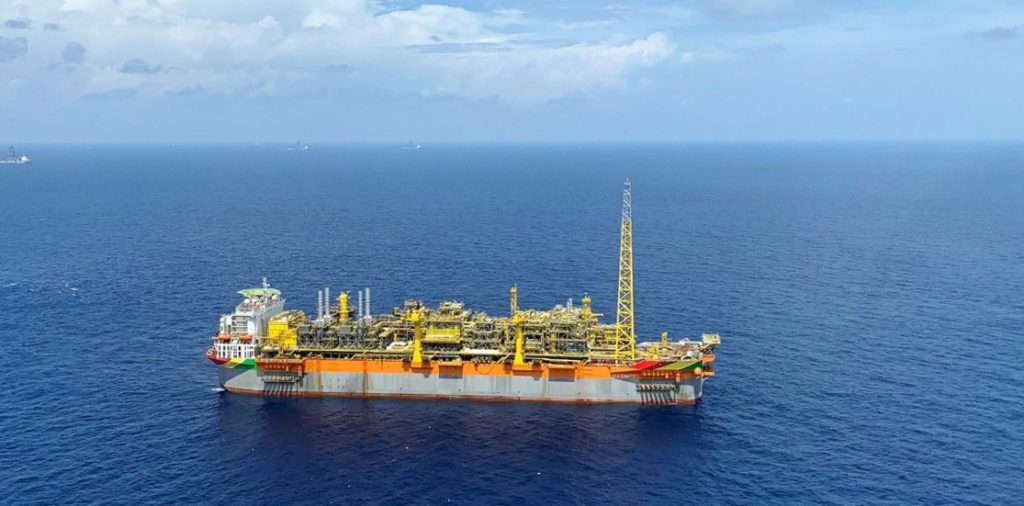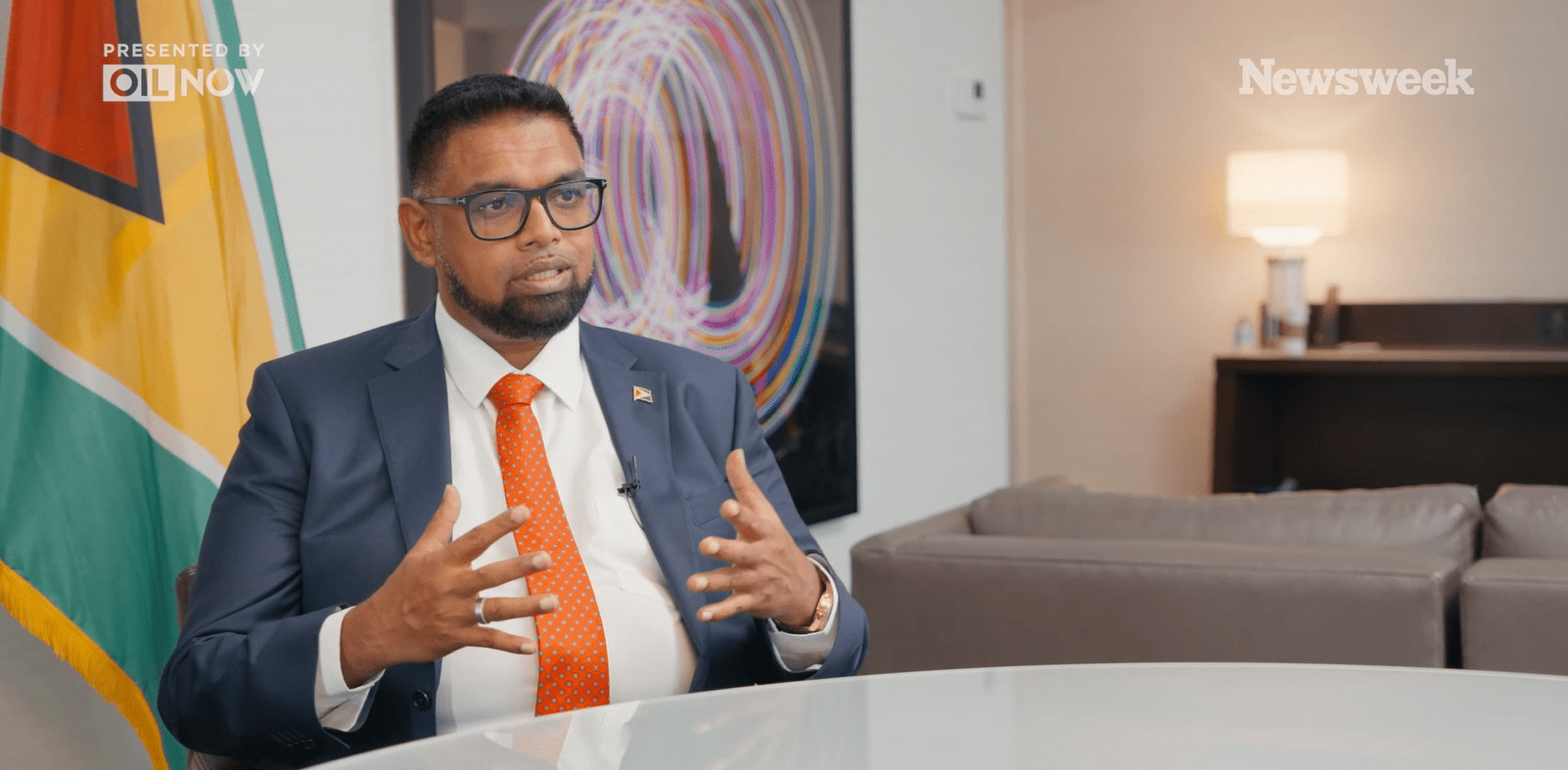President Irfaan Ali has articulated Guyana’s plan to be a global leader in tackling the challenges of climate change, energy sustainability, and food security. The country is using the momentum from its oil-fueled development to expand its influence and advocacy internationally.
Ali, who chaired a discussion on these issues with the United Nations Security Council in New York, said Guyana is redefining its role on the global stage, leveraging its unique resources and commitment to justice and democratic principles. He recently sat down with Newsweek for an exclusive look into the country’s ambitious agenda.
“We have, throughout the history of our country, stood on the side of justice. We have worked relentlessly to be part of a world that is fair, fair to all the stakeholders and participants in the global community,” President Ali told Newsweek.
He explained that this is evident in the country’s past challenges, even in its democratic struggle during the 2020 election season. The event was an unusually long five-month period between election day and the inauguration of the new President, marked by contentious quarrels over the true result of the election. In the broader global context, Ali explained that conflict rolls back progress on sustainability, as well as food and energy security. Guyana’s Ambassador to the United Nations, Carolyn Rodrigues-Birkett has said Guyana has unique perspectives to share with the world on its most pressing challenges.
Highlighting Guyana’s environmental strategy, President Ali remarked, “We want to present Guyana as a leader on climate and environment.” With the nation’s Low Carbon Development Strategy (LCDS) and the strategic deployment of its forest resources for earnings, Guyana has positioned itself as a critical player in the global battle against climate change. Guyana was the first country in the world to be issued carbon credits, by Architecture for REDD+ Transactions (ART), specifically designed for the voluntary and compliance carbon markets for successfully preventing forest loss and degradation. The government continues to advocate for greater recognition of countries’ forest conservation efforts by regularizing systems that facilitate compensation for such contributions.

On the food security front, President Ali emphasized the importance of utilizing Guyana’s “vast expanse of arable land and fresh water” to ensure stability in food prices and supply, both regionally and globally. “So in that capacity, we want to ensure Guyana is playing a key role in the leadership on food security, climate security,” he explained.
Guyana is using some of the wealth gained from oil production to invest in the expansion of its agriculture sector. It has taken the lead in the Caribbean Community (CARICOM) on an initiative to reduce the region’s food import bill by 25% by 2025.
Addressing energy security, President Ali outlined his vision to position Guyana as “an important regional and global hub in the supply of energy,” highlighting not only the country’s oil and gas potential but also its renewable energy capabilities. The country is moving to use natural gas for power generation, to reduce emissions associated with its electricity sector. It also wants natural gas to be the transition fuel that frees up the country’s business environment for investments in renewable energy. Meanwhile, the government is pursuing a largescale hydropower project utilizing a remote waterfall to add grid power. The country also intends to be one of the last oil producers, providing relatively cleaner burning fuels to facilitate the world’s transition.

To realize these goals, President Ali stressed that human resources, education, and healthcare have critical roles to play. “We have to ensure that we have a human resource asset base that is highly skilled, highly competent,” he stated.
Kenji Okamura, Deputy Managing Director of the International Monetary Fund (IMF), recently visited Guyana and commended the government for its work on these issues, while noting the tremendous need to develop a large skilled labor force. In addition to mapping out its own future, Guyana is aiming to contribute to the global community’s efforts to overcome some of the most pressing challenges of the modern day.
The country has taken on a seat at the United Nations Security Council, and currently holds the rotating presidency of the organization. Ali said “We want to use this period of our presidency to not only highlight the effects of conflict and war and the immediate action that is required globally, but for us to bring to the poor the consequences on the environment and food security that are ultimately critically integrated and linked into the prosperity of people and their ability to live a comfortable and rewarding life in the future.”
Watch Ali’s Newsweek interview here.



